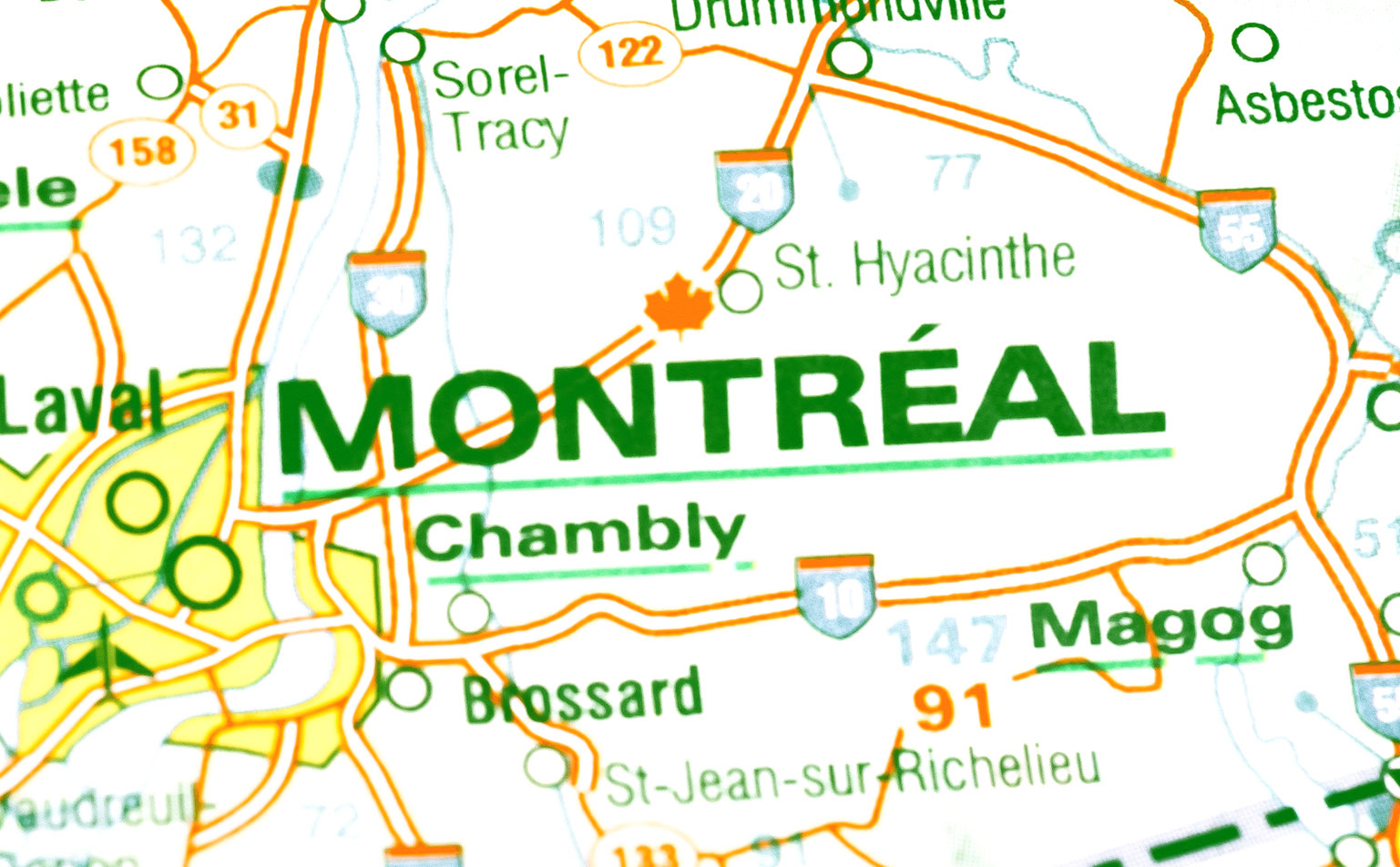Is moving to Montreal the right choice for you? This guide can help you envision living there!
Are you planning to move to Canada’s second-largest city? Montreal is a bustling, cosmopolitan city that is known for its nightlife. When you compare it to a standard North American city, Montreal offers a more European feel. Additionally, it is the second-largest predominantly French-speaking city in the western world.
From Montreal’s living costs to its culture, this guide to settling in Montreal can help you build more accurate expectations for your new home.
What is the Weather Like in Montreal?
Montreal is partly cloudy all year long. Winters are snowy, windy, and extremely cold while summers are hot, humid, and long. Spring and fall seasons are short with more moderate weather and an increase in precipitation. Fall explodes in colour with leaves turning vibrant shades of orange, red, and brown. Throughout the year, the temperature varies from -13 degrees Celsius to 27 degrees Celsius.
What are the Living Costs in Montreal?
In general, Montreal’s property and rental prices are more affordable than many of Canada’s larger cities. As of 2021, a one-bedroom apartment can be rented for around $930 to $1,500 a month, and a two-bedroom apartment can be rented for around $1,400 to $2,100 a month.
There are also bills to consider. Household utilities can cost between $60 to $100 a month depending on how much water, hydro, gas, and internet you and your family use.
Unfortunately, groceries and take-out options usually cost the average national price or higher. For example, local beer might cost $6, but imported beer can be $9.50 in the more touristy areas of Montreal such as Old Port or Crescent St. In addition, you need to factor in tipping as this is a standard practice in Canada. For more information on tipping, read Preparing Your Move to Canada.
What is Public Transit Like in Montreal?
Montreal offers an extensive public transportation system that includes 220 bus lines and an underground rail (also known as the métro). Blue and white signs mark the 68 métro stations, so they are easy to navigate. In total, the métro has four colour-coded lines to plot your route.
Would you rather take the bus above ground? Public buses cover areas that the métro does not.
Every fare is charged by the ride rather than by distance. It costs the same for buses and the métro:
- Single Fare: $3.25
- One-Day Unlimited Ride Card: $10
- Three-Day Card: $20
- 10 Trips: $29.50
- Unlimited Weekend Pass (Valid from 4 PM Friday to 5 AM Monday): $14.25
- Unlimited Evening Pass (Valid from 6 PM to 5 AM): $5.50
Keep in mind that you can ask for a student, child, or senior citizen discount as well.
Montreal offers a series of interconnected passages known as RÉSO or the “underground city” that provides a pleasant break from extreme weather during the summer and winter months. There are 120+ exterior access points that connect to the 32 km of tunnels. These can take you to commuter stations, shopping malls, métro stations, banks, offices, apartments, the Bell Centre arena, and the main bus station.
Do you enjoy biking everywhere? Montreal is home to hundreds of kilometers of biking paths too.
What is the Culture Like in Montreal?
Montreal is acknowledged for being home to many creative industries such as digital arts, video gaming, augmented and virtual reality, interactive and immersive installations, as well as film and television services. It’s obvious that Montreal values its cultural offer. For example, the City Cultural Policy’s 2017-2022 period is placing a new emphasis on recognizing how the digital revolution is going to change culture.
Moreover, major investments have gone into Montreal’s cultural district, also known as the Quartier des Spectacles. With over 80 cultural venues, 30 performance halls and venues, 450 cultural organizations and 7,000 jobs, this cultural district is a thriving, wonderous area. In fact, Canada’s leading cultural complex, Place des Arts, resides within this district as well as the Place des Festivals, which is host to many of the city’s festivals: the Festival Juste pour rire (Just for Laughs), the Montreal International Jazz Festival, Festival Nuits d’Afrique, Les FrancoFolies de Montréal, and more!
Additionally, Montreal is known for its nightlife. From small bars to nightclubs, Montreal accommodates many tastes. If you are wondering where to begin your night, then explore Montreal’s popular areas:
- Crescent St on the western side of town will cater to tourists and anglophones.
- Bishop St. focuses on the locals.
- Boulevard St-Laurent is home to stylish bars and clubs.
- The Latin Quarter on St-Denis is widely popular during the summer months when its large outdoor patios (known as terrasses) are open.
What are the Best Websites to Find Apartments in Montreal?
There are a number of great websites that you can use to locate apartments in Montreal. However, they can differ depending on whether you are looking to purchase or rent a home. Here are a few websites to get started on your house hunting.
- Rental Montreal: Search by keywords, location, bedrooms, and furnishing options.
- PadMapper: Check out rent trends while you narrow your search in the Montreal area.
- Rentals: Follow their rental guide as you utilize one of the most popular rental websites in Montreal.
- Zumper: Discover various living options in the area you are most interested in.
- Appartmap: Filter your apartment search with an interactive map.
- Louer: Find thousands of listings for condos, apartments, homes, short-term rentals and more.
Review a breakdown of apartment-hunting terminology here.
What are the Best Job Search Websites for People to Find Jobs in Montreal?
Similar to finding an apartment, there are many job search websites that people use to find positions in Montreal. Each website has its own job search functions, so find an option that appeals to you most:
- Career Builder: As one of the biggest and longest-lived job boards online, you can filter by a variety of criteria such as job title, pay range, and location.
- Indeed: Search for jobs locally or globally and benefit from using their free resources such as their career blog and resume builder tool.
- Job Boom: One of Quebec’s largest job sites for posting open positions.
- LinkedIn: The largest online networking website.
- Emploi Québec: Check the job market and consult offers.
- Workopolis: Search on one of Canada’s biggest online job banks.
- Monster: One of the best general job sites that offers many services such as networking boards, company profiles, resume uploads, and more.
- Neuvoo: Index jobs directly from various company career websites, job boards, and placement agencies.
What are the Top Local Organizations that Help New Immigrants Get Settled in Montreal?
There are approximately 287 organizations that assist newcomers during their integration process in Quebec. These partners help newly arrived immigrants and cultural communities through various free services. This includes reception, personalized support, integration assistance, adapted French courses, training sessions for Quebec’s work and societal values, as well as support for special clientele such as disadvantaged families.
Final Thoughts
Get ready to experience Montreal’s wonderful festivals, lively nightlife, and unique lifestyle. Montreal has a ton to offer — hopefully this guide to settling in Montreal eases your transition to this beautiful city!
*Opinions expressed are those of the author, and not necessarily those of Student Life Network or their partners.




